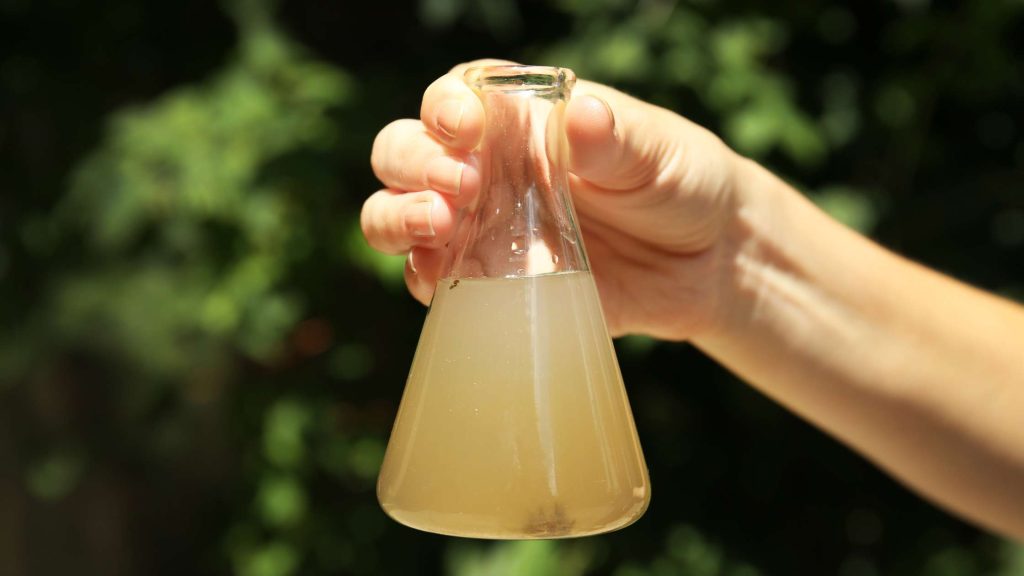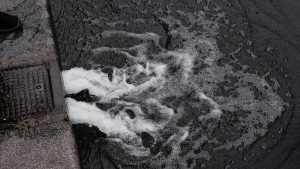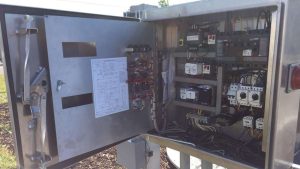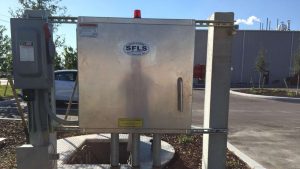When you consider the challenges of managing fats, oils, and grease (FOG) in wastewater systems, it’s clear that conventional methods often fall short. Traditional approaches can be costly and environmentally detrimental.
However, sustainable microbial solutions offer a promising alternative. By harnessing specialized microbes, you can break down FOG more efficiently, reducing reliance on harsh chemicals and enhancing waste management. This method not only supports operational efficiency but also protects the environment.
Curious about how continuous bioaugmentation can transform wastewater management and cut costs? Let’s explore the potential of these innovative microbial solutions.
Understanding FOG
FOG, which stands for Fats, Oils, and Grease, is a common byproduct of food preparation and processing activities that can cause significant issues in wastewater systems.
You’ll find FOG sources in restaurants, food processing plants, and even household kitchens.
When FOG solidifies in sewer systems, it forms blockages that restrict wastewater flow and cause sewer overflows.
These FOG impacts lead to foul odors, increased maintenance costs, and potential environmental hazards.
Detecting FOG early is crucial for preventing these problems.
Regulations often require establishments to implement FOG treatment practices to manage and reduce their FOG output.
Effective FOG management ensures your wastewater infrastructure remains functional and compliant with environmental standards.
Importance of FOG Elimination
Eliminating fats, oils, and grease from wastewater systems is crucial to prevent severe sewer blockages and costly repairs. Proper FOG management helps you maintain compliance with FOG regulations, ensuring public health and safeguarding the environment. Raising community awareness about responsible disposal practices also plays a vital role.
Here are four key reasons why FOG elimination matters:
1. Public Health: Prevents sewer overflows that can contaminate water supplies.
2. Wastewater Treatment: Enhances efficiency and reduces operational costs.
3. Eco Friendly Practices: Minimizes the need for harsh chemicals.
4. Regulatory Compliance: Helps meet stringent environmental standards.
Challenges in FOG Management
Managing FOG effectively often presents significant challenges due to its diverse sources and the tendency of fats, oils, and grease to solidify in sewer systems.
You’re dealing with FOG sources like residential kitchens, restaurants, and food processing industries, making universal prevention strategies tough.
Regulatory challenges further complicate things; staying compliant with local laws requires constant vigilance.
Public awareness is another hurdle—many people don’t realize their actions at home contribute to larger problems.
Effective maintenance practices are crucial but labor-intensive and costly, often only providing temporary relief.
To tackle these issues, comprehensive strategies encompassing education, regulation, and innovative solutions are needed to reduce FOG accumulation and ensure efficient wastewater management.
Engineered Microbial Solutions
Addressing the challenges in FOG management, South Florida Lift Station offers effective engineered microbial solutions that break down fats, oils, and grease in sewer systems.
These solutions convert waste into simpler, non-solidifying compounds by leveraging microbial metabolism and enzymatic breakdown. This process enhances microbial ecology, promoting a balanced and efficient waste conversion system. Fermentation processes are harnessed to optimize the activity of these specialized microbes, ensuring consistent performance.
Here’s how you benefit:
1. Reduced Blockages: Prevents FOG buildup, reducing the risk of sewer blockages.
2. Cost Savings: Lowers maintenance and emergency repair costs.
3. Eco-Friendly: Minimizes the need for harsh chemicals, protecting the environment.
4. Improved Efficiency: Enhances overall wastewater treatment processes.
Continuous Bioaugmentation
With continuous bioaugmentation, specialized microbes are regularly introduced into the sewer system to maintain optimal populations for effective FOG reduction.
You’ll employ advanced bioaugmentation techniques to ensure a diverse microbial population that excels in FOG degradation.
These microbes possess unique metabolic pathways, allowing them to efficiently break down fats, oils, and grease.
By maintaining microbial diversity, you enhance the overall effectiveness of wastewater treatment processes.
The microbes’ metabolism converts FOG into simpler substances that don’t clog pipes, ensuring the system runs smoothly.
Continuous bioaugmentation improves FOG management and supports long-term, sustainable maintenance of sewer infrastructure, reducing the need for harsh chemical treatments and labor-intensive interventions.
Economic Benefits
Continuous bioaugmentation can significantly reduce maintenance and emergency repair expenses, providing substantial economic benefits. Here’s how:
1. Cost savings: Lower your expenses by minimizing the need for frequent, costly maintenance and emergency repairs.
2. Operational efficiency: Improve your wastewater facility’s performance by optimizing treatment processes and reducing blockages.
3. Maintenance reduction: Decrease the frequency of maintenance interventions, allowing your team to focus on other critical tasks.
4. Service disruptions: Prevent sewer overflows and blockages, ensuring smoother operation and fewer interruptions to service.
These benefits ultimately lead to optimized treatment processes and a more reliable wastewater management system.
Environmental Benefits
Implementing sustainable microbial solutions for FOG elimination enhances water quality and supports healthier aquatic ecosystems. By addressing FOG impacts, you help prevent harmful blockages that can lead to sewer overflows and water contamination. This proactive approach safeguards aquatic ecosystems, preserving the delicate balance of life in rivers and streams.
Moreover, you promote community health by reducing the risks associated with polluted water sources. Using green technologies, such as microbial solutions, lowers the reliance on harsh chemicals, ensuring a more eco-friendly process.
These methods contribute to a sustainable future, align with environmental regulations, and foster a sense of stewardship within your community. Embrace these solutions to protect water quality and your local environment.
Partnering with South Florida Lift Stations for Sustainable Waste Management Solutions
At South Florida Lift Stations, we’re committed to providing premier lift station services that align with sustainable practices for eliminating FOGs.
Our expertise in utilizing innovative microbial solutions enhances waste management and significantly reduces maintenance costs while safeguarding the environment.
By integrating specialized microbes into your waste management systems, we promote a balanced microbial ecology that minimizes the reliance on harsh chemicals.
Our continuous bioaugmentation services maintain optimal microbial populations, improving treatment effectiveness and protecting community health from water contamination.
Together, we can create a more efficient and environmentally sustainable future for your lift station operations.








